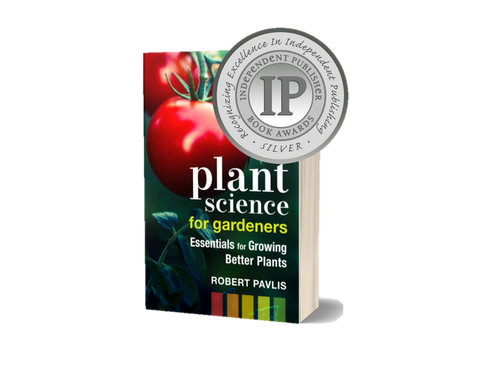Welcome to Garden Myths – We are the Garden Myth Busters!
Our Goal: to provide correct gardening information and make you a better gardener.
Our Process: We research topics and examine scientific studies to bust gardening myths. Then we provide FREE blog posts.
Our Experience:
The author of most posts, Robert Pavlis, has 50 years of gardening experience, is an award-winning author of 11 gardening books, holds an M.Sc. in chemistry and biochemistry, teaches numerous gardening courses, and has written articles for many popular magazines such as Mother Earth News.

Robert’s Plant Science for Gardeners book won the Independent Publisher Book Award for Science in 2024.

In 2025, Roberts’ book, Food Science for Gardeners, won the International Book Award for the Home and Garden category.
Our Guarantee:
- The information on this site is more accurate than most other gardening sites. If you find an error and let us know in the comments, and we’ll correct it immediately.
- None of the information is created by AI – we prefer real people.
- All of the information is science-based.
Start Here:
Start by selecting from one of these popular categories, and enjoy the site (click on image).










Always my first stop for all aspects of gardening as it’s well written biased on evidence based research and has never let me down Thanks for sharing your knowledge. From a research plant physiologist.